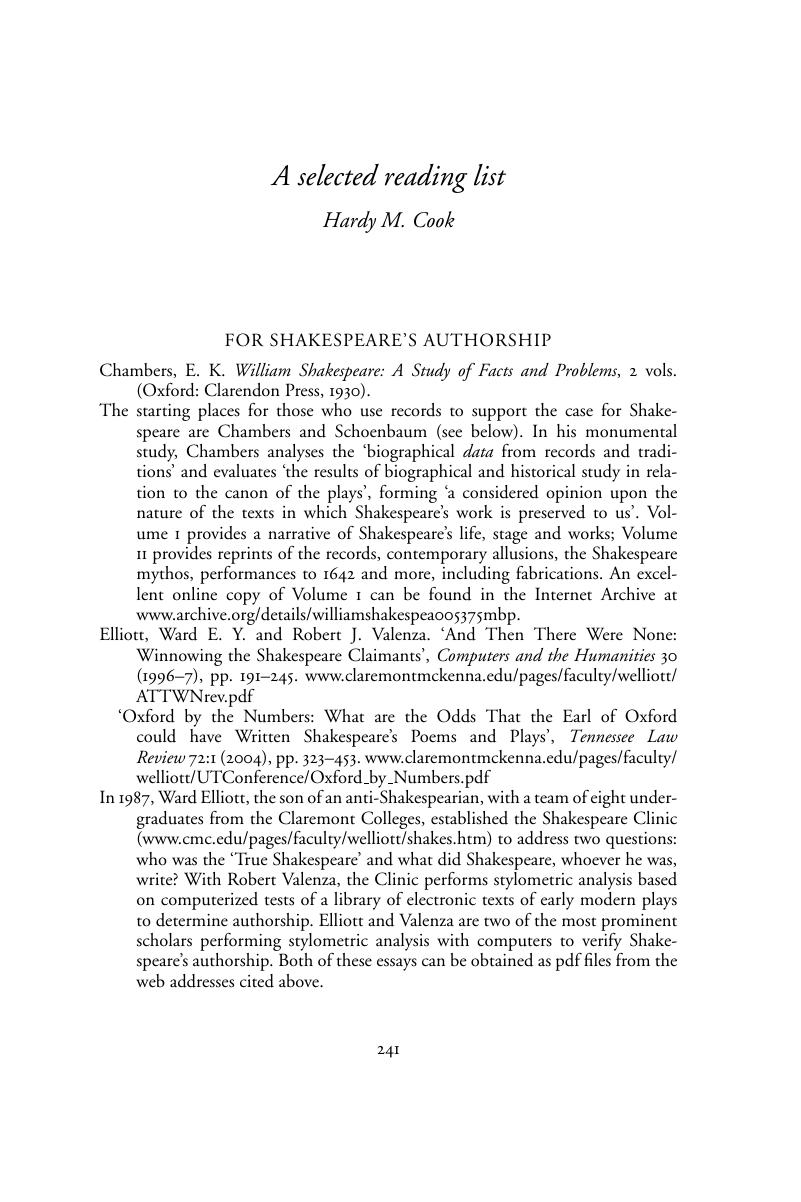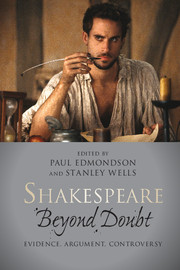A selected reading list
Published online by Cambridge University Press: 05 April 2013
Summary

- Type
- Chapter
- Information
- Shakespeare beyond DoubtEvidence, Argument, Controversy, pp. 241 - 248Publisher: Cambridge University PressPrint publication year: 2013



